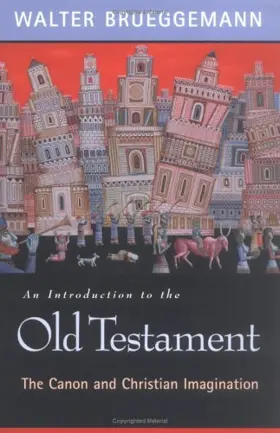

An Introduction to the Old Testament: The Canon and Christian Imagination
Pages
452
Publisher
Westminster John Knox
Published
11/1/2003
ISBN-13
9780664224127
America's premier biblical theologian offers an outstanding introductory textbook on the broad theological scope and chronological sweep of the Old Testament. Covering every book of the Old Testament—in the order in which it appears in the Hebrew Bible—the Introduction explains, without unnecessary jargon, the most important issues and methods in contemporary interpretation of the Old Testament—literary, historical, and theological.
Reviews
Is there a need for another introduction to the Old Testament? Indeed, there is an urgent need for an introduction in the way Walter Brueggemann has written it. It is a pleasure and a fruitful enterprise to read this basic book on the Old Testament, a most helpful and motivating tool for beginners in biblical studies as well as for scholars who want a brief but sound and comprehensive introduction to the state of the art of biblical hermeneutics at the beginning of the twenty-first century. Although Brueggemann stands in an ongoing debate with the scholarly literature, documented at times by names of scholars and by the selected bibliography (403�17), he does not bother the reader with too much name-dropping. For those acquainted with the current discussions and the older positions in Old Testament exegesis, Brueggemann�s presentation is a welcome description of the shift of paradigms that has taken place in recent decades. He always looks back at �older scholarship� and its positions, especially the historical-critical approaches, and then demonstrates the differences and achievements of the newer approaches and methods. While historical-critical studies on the Old Testament are mainly a highly academic enterprise for �experts,� Brueggemann assumes that canonical, rhetorical, and sociological approaches come more readily in contact with the milieu of the contemporary interpretive community of the church (xi).
[Full Review]
